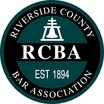
Many people are very overwhelmed by the “estate plan” discussion. When the issue is raised, most people zone out or attempt to change the subject. Visions of paper and signatures and legal jargon and filing documents and changing accounts come to mind. However, having a plan is not only for your property and money – it is also to help your family with end of life decisions.
Wills & Trusts
A will and trust help a person identify how they want their property distributed after death. But, there are several differences between a will and a trust. A will helps a person distribute their property on death, but in order to distribute the property, the will has to be “probated”. Probate requires the will be validated, the deceased person’s assets be inventoried and valued, all debts and creditors to be paid, and, finally, for the remaining assets to be distributed. Probate can take a year to 18 months and may be costly. A trust is often a comprehensive document, which also helps a person, or a couple, distribute their property on death. But, a trust will help you avoid probate and will provide confidentiality. This document never has to be introduced into court. When you are setting up a trust, the cost is more than a will, but may save more money in the long run. Again, there are several differences between the two, but these are some of the highlighted. Either document will help your family carry out your wishes.
Power of Attorney
Another important document, which every person should have, is a power of attorney. A power of attorney is a written document giving another person authorization to make financial and legal decisions for another, if that person should become hospitalized, disabled or otherwise incapacitated. There are many types of powers of attorney – limited powers of attorney, durable powers of attorney, or specific powers of attorney. Medical powers of attorney can be separate documents, completely.In the event you are hospitalized or disabled, it is imperative to give a trusted person the ability to take care of your finances and your health care decisions.
Updated Beneficiary Designation Forms
Beneficiary designation form is a form, which, not surprisingly, designates a beneficiary for a policy or an account. For life insurance policies, 401(k) accounts and other assets, a beneficiary designation form will generally override any conflicting provisions within a will or trust. Often, people forget to update these forms and, when the estate plan is updated,there is now a conflict. In order to make sure the asset goes to who you desire, review these forms annually.
If you are in need of assistance, and could use the advice of a local estate planning lawyer. A qualified attorney who understands the ramifications of your legal documents today and in the future can be worth far more than the cost of a consultation and document preparation.
|
IE Legal Hub
Local legal information, published by local Inland Empire lawyers. Are you a local attorney?
Archives
July 2023
Categories
All
|

 RSS Feed
RSS Feed




